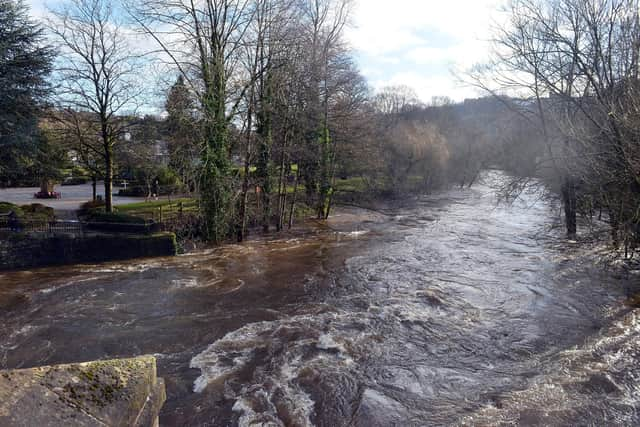Derbyshire Dales saw most sewage dumping of any county district in 2021
and live on Freeview channel 276
By law, water utilities in the county are allowed to release sewage into waterways after extreme weather events, such as heavy rain, to prevent the system from backing up into homes and workplaces.
Analysis from the Rivers Trust charity found that, in 2021, there were a total of 16,386 such incidents in Derbyshire, from 531 monitored overflows, with a total duration of 127,854 hours – more than 14.5 years of continuous dumping.
Advertisement
Hide AdAdvertisement
Hide AdThe Dales’ 97 monitored sites accounted for 3,475 overflows with next highest district, Amber Valley, recording 3,460 incidents at 118 sites.


The duration of overflow discharge in the Dales dwarfed that of any other district – 34,269 hours, or 3.9 years, compared with Amber Valley’s 22,641 hours.
The district’s unwanted record may owe a lot to geography, but it may also reignite debates about local planning policies and Severn Trent’s management of Matlock’s sewers, a persistent issue in recent years with often unpleasant side-effects.
A spokesman for the company said: “We’re passionate about making a positive impact on the communities and the environment where we live and work. Our region’s rivers are currently the healthiest they have been since the Industrial Revolution.
Advertisement
Hide AdAdvertisement
Hide Ad“We’re working hard to use overflows less and investing £100million a year to go even further in improving rivers so that nature can thrive.”
The practice of sewage dumping gushed up the political agenda and into Parliament last autumn, when the Government opted against imposing strict legal duties on water companies to cut their overflow rates.
A consultation is currently running on the proposed alternative, the Storm Overflows Discharge Reduction Plan, which has been criticised by environmental organisations for its watered-down commitments.
The trust’s chief executive, Mark Lloyd, said: “We want to have rivers where people and wildlife can thrive, but the target timelines in the plan are far too slow – I want to see this in my lifetime.”
For more details on the consultation and how to have your say, go to https://bit.ly/38KhHAH.